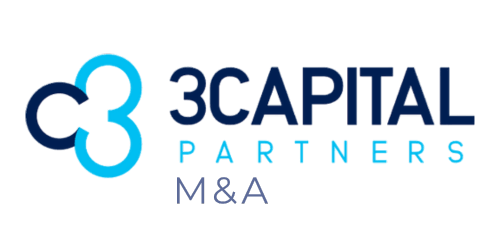
Every company in the process of merger or acquisition goes through changes and transformations. When it comes to uniting two companies, HR plays an essential role in keeping an organization “alive”, after all, its employees need to be aware of the new strategies and willing to embrace all changes.
Employees are the most important assets for a company and, therefore, when organizations are not prepared for the mergers and acquisitions process, they often fail to consider the employees of the company being acquired.
This is due to the fact that many M&A operations focus on financial aspects, forgetting about issues related to culture and organizational climate and other aspects that can harm employees and even generate a wave of resignation.
But then, how to avoid this? Read on to understand the importance of HR in a mergers and acquisitions operation.
How does strategic people management in mergers and acquisitions work?
Some of the main reasons for carrying out a merger or acquisition are the increase in market share, savings in the purchase of raw materials and production of products and also the expansion of the geographic area in which the companies operate. If you want to see more details about the advantages and disadvantages of an M&A, see here .
As a result, the human issue in mergers and acquisitions has been considered increasingly relevant. To be clear, two aspects need to be considered in more detail: what kind of transaction should be considered successful and what are the human factors involved.
From the point of view of business management, any merger or acquisition is an organizational change at a structural level, which helps in the transformation processes and which, in a way, has profound consequences.
Because the power and depth of change are so essential that conventional methods of measuring the effectiveness of organizational transformation are not even applicable (i.e., there are no criteria for benchmarking performance or success) and the result is a new organization with a new set of data involving: structure, strategy, culture and sometimes occupation.
What to do?
With Human Capital, when there is a prolonged stress effect, it is not possible to participate adequately in the integration. That is, the dysfunctional elements listed above are not exaggerated, and – this kind of reaction – can be predictable within such profound organizational changes.
Therefore, HR specialists must be qualified and experienced capable of carrying out the integration of the companies that will be involved in the transaction. When you have a strategic HR aligned with the leadership, the company can:
- Check the compatibility of two companies are in terms of management style and organizational culture ;
- The Talent Map helps to create the Human Capital survey;
- Reorganization of duplicate functions and allocate talent efficiently;
- Detect potential barriers to integration;
- Know statistical information on staff turnover;
In later stages, at the time of integration, it is necessary to ensure:
- Conditions of termination of employment contracts;
- Create new policies in the company’s HR;
- Assemble a special team, in which activities are focused only on integration;
- Define strategic planning and internal communication;
- Recruitment of consultants specialized in communication and facilitation;
- Create activities to form teams and create a new organizational culture;
- Provide training on the use of new management systems that are integrated.
Why is people management important in these processes?
Finally, the role of HR becomes one of the most important in mergers and acquisitions. In the due diligence process within Human Capital, the company and its new owner need to work together to review all items on the transaction checklist, such as:
Knowledge: HR must evaluate the performance of each employee. What determines the impact of the transition is the level of expertise, so assessing knowledge, skills and behavior within Human Capital can determine at what point the new owner should retain employees.
Climate: One of the things that helps to clarify how the climate is in the workplace is conducting surveys. Therefore, it is important that employees feel valued, after all – any dissatisfaction can cause obstacles during the acquisition.
That’s why it’s important to do post-acquisition research with employees to also determine the specific barriers the buyer will face.
Strategy: HR needs to devise a different strategy, but how? Comparing the strategic goals of the two companies and determining what is compatible and what may be the problems. The important thing is to understand that the guidelines – regarding the purchasing company’s personnel – are applied, but the integration of the two must happen in some aspects.
Planning and Execution: As stated in this post, the HR role assumes an important responsibility in the merger or acquisition process. After all, HR must analyze the entire preliminary process already carried out and manage to identify potential risks to the business plan, in addition to formalizing integration structures within the departments, reinforcing communication and establishing organizational balance for the company.
And having specialized advice is one of the most important steps for your company to climb to new heights. Count on 3Capital to assist you at all times in your company!



